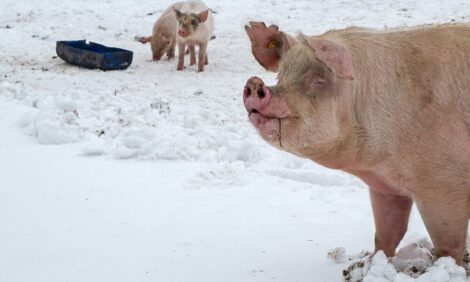



African swine fever confirmed in Papua New Guinea
Papua New Guinea has confirmed its first cases of African swine fever among village pigs, the World Organisation for Animal Health (OIE) said.The cases occurred in four villages in the Mendi Munihu district of the Southern Highlands province, with a total of 396 free-ranging pigs dying from the disease, the Paris-based OIE said in a note, citing a report from Papua New Guinea's veterinary services.
The incident involving death of about 396 free ranging pigs was first reported by provincial livestock officer based in Mendi town on 5 March 2020. The clinical symptoms were primarily sudden deaths with some pigs surviving the outbreak.
The National Agriculture Quarantine and Inspection Authority (NAQIA) dispatched an investigating team on 11 Mar 2020 comprising a veterinarian, an epidemiologist and laboratory staff supported by local provincial livestock officers on the ground. A total of five pigs were investigated and whole blood and sera collected and subjected initially to African swine fever (ASF) antibody (Ab) rapid test kit. One dead pig was subjected to post-mortem examination and tissue samples collected. Two out of four pigs showed positive to ASF Ab rapid test kit. Samples were dispatched to the Veterinary Laboratory in Port Moresby. Samples were tested using ASF antigen ELISA test and repeat rapid test kit. Two pigs showed positive for ASF Ag ELISA test on sera and whole blood samples. Samples were dispatched to Australian Animal Health Laboratory (AAHL) on 20 March 2020 for confirmatory PCR testing. On 25 March 2020, AAHL confirmed African swine fever.
African swine fever has spread across Asia, including in Papua New Guinea's neighbour Indonesia, leading to the deaths of millions of pigs. Reports from 15 December indicated that around 30,000 pigs had died in Indonesia's North Sumatra province as a result of the virus.
China, home to the world's largest pig herd, has been particularly affected, causing upheaval in global meat markets. Chinese authorities announced on 16 March that it is encouraging companies to build pig farms overseas to plug a severe domestic pork shortage after the virus slashed almost half of its pig herd.






